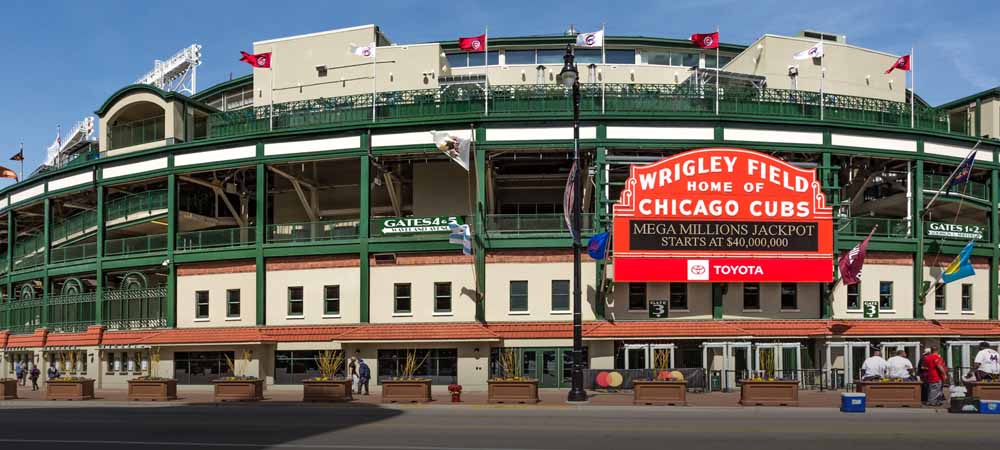- The city of Chicago is set to discuss a potential new 2% tax on sports betting revenues in the city; this would bring the effective sports betting tax rate to 19%.
- While many see the tax as an attempt to appease Neil Bluhm – a billionaire casino mogul – Bluhm is not satisfied, calling the 2% tax rate “peanuts” compared to his expected losses.
CHICAGO – A new Chicago ordinance would impose an additional 2% municipal tax on gross sports betting revenue. The ordinance is expected to be approved by the City Council at some point this week.
The 2% city tax will be added on top of an already-aggressive legal sports betting taxation policy: sports betting revenues in Chicago would be subject to the new tax, as well as the already-existing 15% tax on gross sports betting revenue imposed by the state, plus the 2% tax on gross sports betting revenue imposed by Cook County.
This would bring the effective tax rate for sports betting in Chicago to 19% of gross revenues.
The new ordinance is a response to billionaire Neil Bluhm, an influential figure in Chicago and the casino industry in general. Bluhm is the co-founder of Rush Street Gaming, who is vying for a bid to build a casino in Chicago. Further, he owns Rivers Casino in Des Plaines – a nearby casino that also hosts a sportsbook – which stands to lose a good chunk of revenue if competitors begin to spring up in Chicago.
At a city council meeting on Tuesday, Bluhm claimed that every $1 of sports betting taxes would siphon $4 of revenue from Illinois casinos.
Chicago mayor Lori Lightfoot, however, claims that the city ran an impact study that disproves Bluhm’s claims.
Despite Lightfoot’s insistence that legal Illinois sports betting would not harm local casinos, her administration still went forth with the alterations to the tax policy of the soon-to-be-passed ordinance. This has led to much speculation on the motivations of the change.
For Lightfoot’s part, she argues that without the additional 2% city tax, there is not enough incentive for the city to make up for the financial strain Chicago would need to shoulder for the requisite infrastructure.
“We need to make sure that there are sufficient resources for us to be able to do it,” she said. “We’re in good shape to move this forward. And I look forward to making sure that we get our fair share of the revenues from this. It’s only fair that the city of Chicago also obtains revenues as a result of this new venture by the sports teams.”
Despite the efforts to seemingly appease the powerful Bluhm, the new tax (which is not imposed on his casino in Des Plaines) did not seem to please the casino mogul.
“That 2% is nothing. It’s small potatoes. The 2% will be somewhere in the area of $1 million. But we believe and have studies that say that the loss of casino revenue will be in the area of $11 [million] or $12 million a year,” Bluhm told the Chicago Sun-Times.
Regardless of why the 2% tax was imposed, it seems incredibly likely that the ordinance will be approved this week; however, the impact this has on the gaming industry of Illinois and Chicago itself remains to be seen.
Advertising Disclosure
In order to provide you with the best independent sports betting news and content LegalSportsBetting.com may receive a commission from partners when you make a purchase through a link on our site.
News tags: Chicago | Chicago Sun-Times | Des Plaines | Illinois | Lori Lightfoot | Neil Bluhm | Rush Street Gaming

Jerad has been a welcomed addition to the LegalSportsBetting.com writing team. Covering topics regarding the expansion of sports betting in the US, Jerad focuses on legislative efforts, bill signings and other methods for sports betting legalization. Finishing his education as a college baseball player, Jerad has first-hand knowledge of competitive sports, paired with years of personal sports betting as well. As a political science major at the University of Central Florida, Jerad covers the political, legal, and legislative aspects of sports gambling without any issues.


 Bitcoin Sports Betting Sites
Bitcoin Sports Betting Sites Best Online Sports Betting
Best Online Sports Betting Famous Sports Bettors
Famous Sports Bettors States With Legal Sports Betting
States With Legal Sports Betting Sports Betting Events
Sports Betting Events




